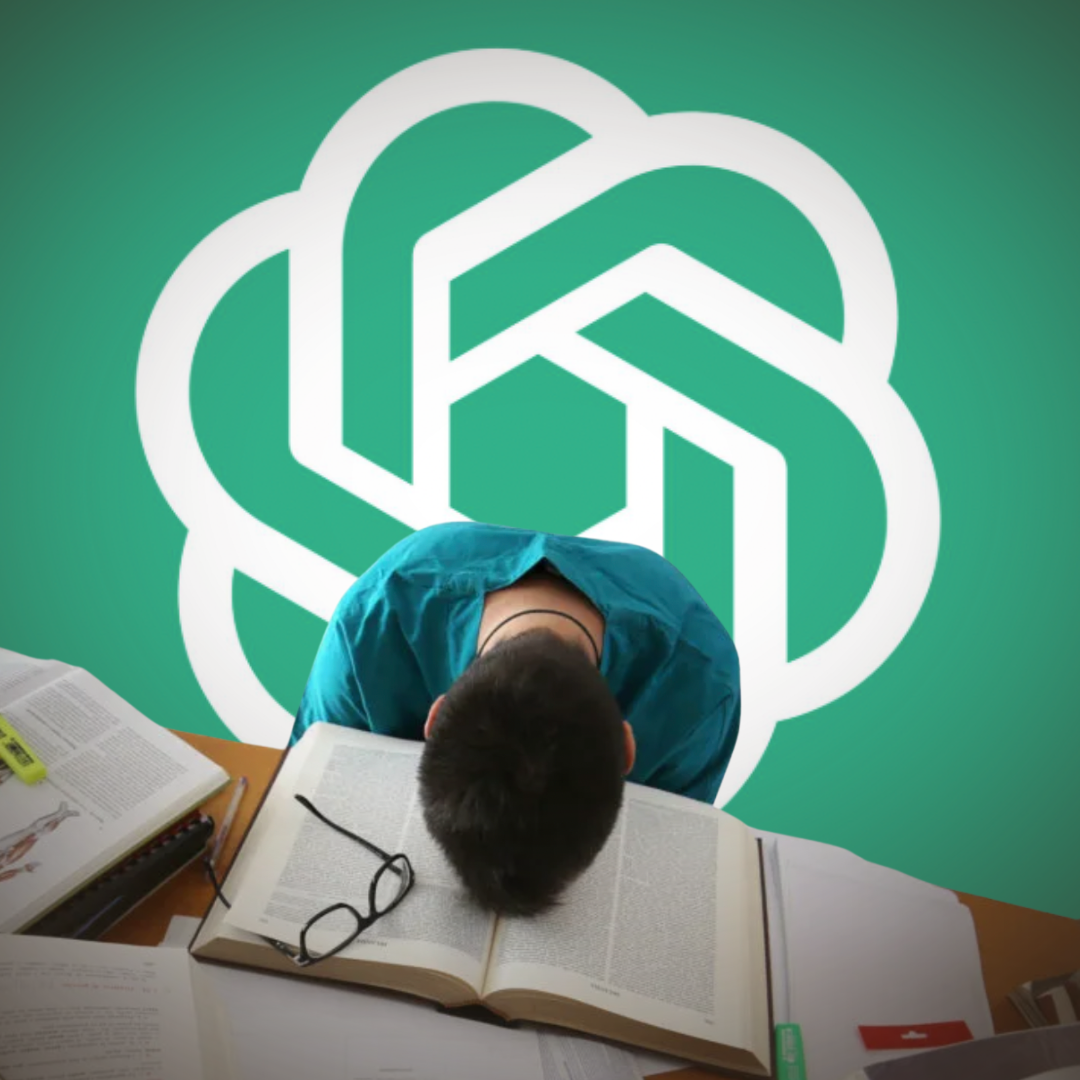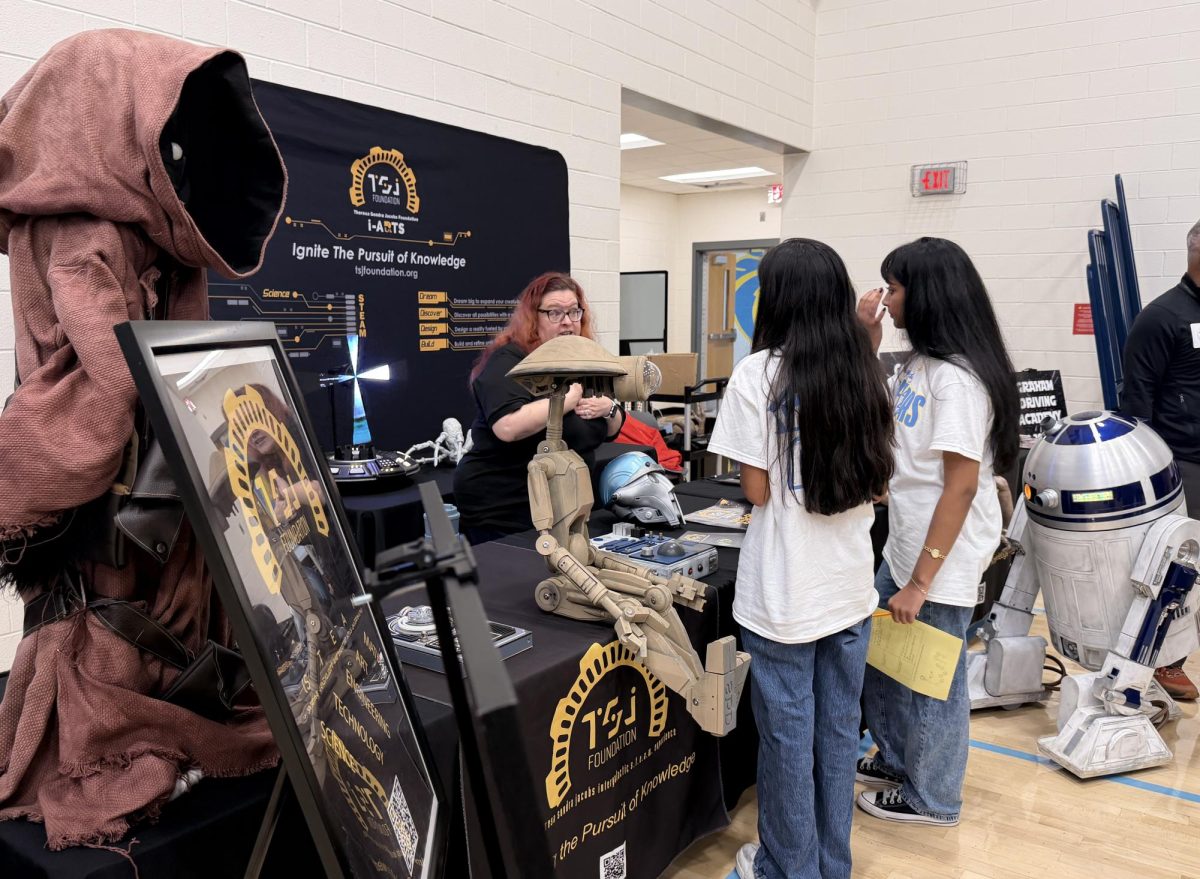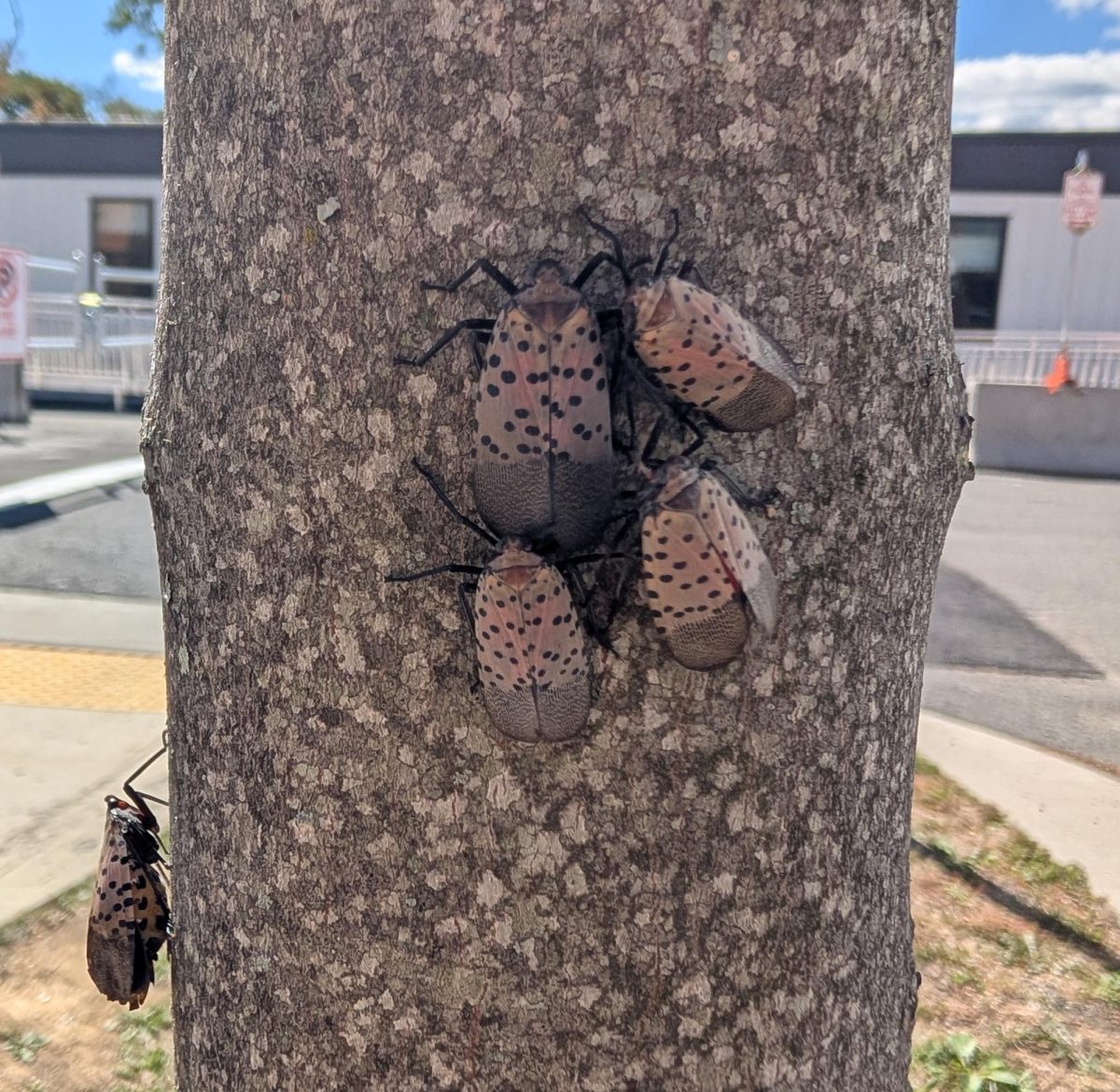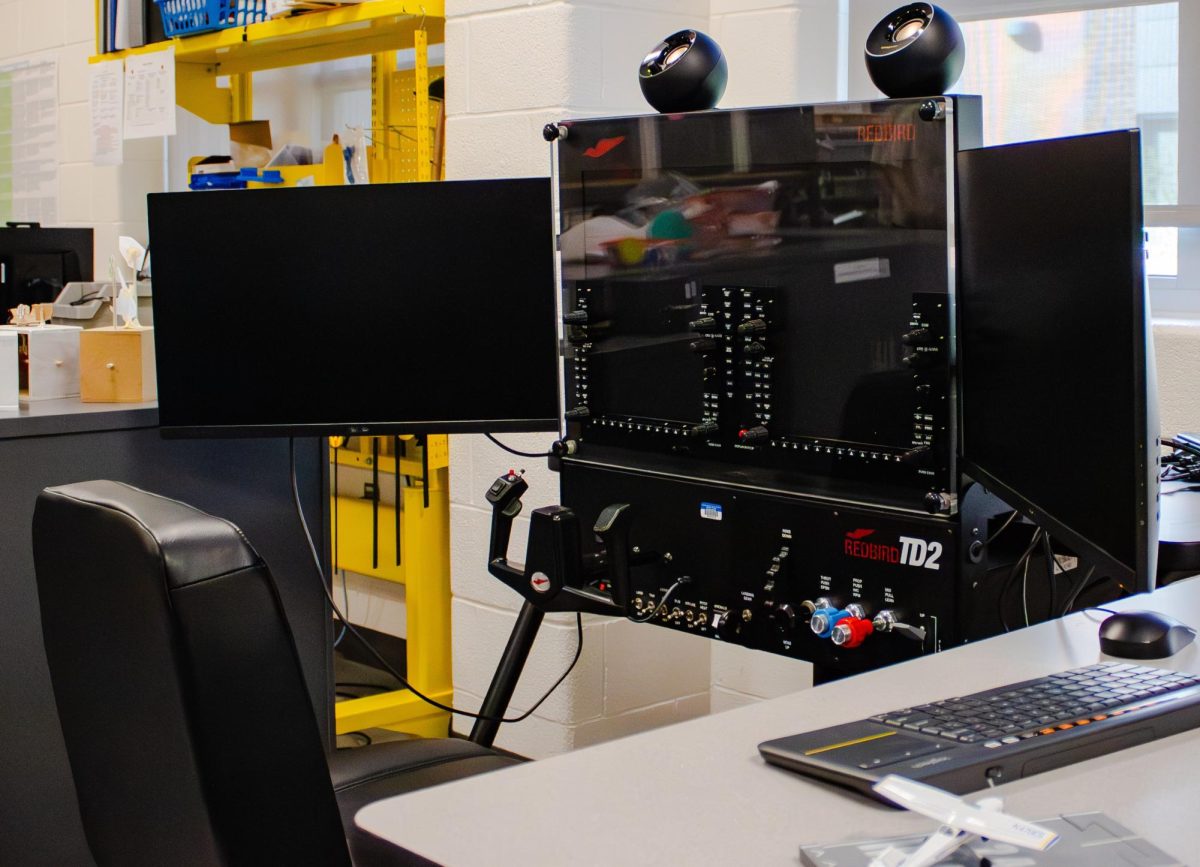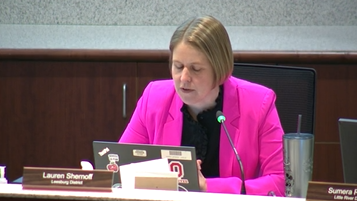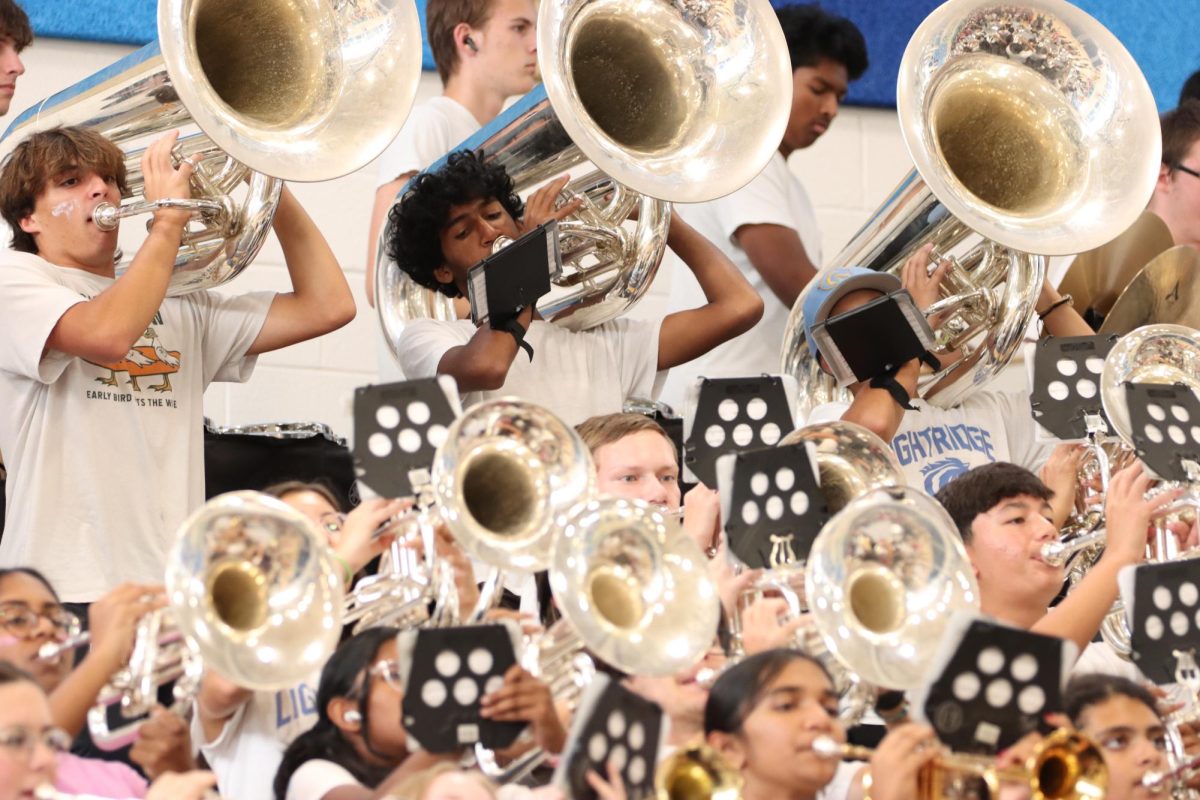Additional reporting for this story was provided by Lalitha Aravind, Sara Yusuf, Maddie Coch and Samantha Hansen.
Throughout March and April, multiple AP Seminar students were caught using AI to cheat on their AP assessment. Although administration declined to comment on how many students were caught, students interviewed by Lightridge News believe the number ranges from 15 – 20 students.
“It’s definitely one of the largest number of cheaters I’ve seen in a class like AP Seminar” said Swetha Vasabhaktula, a previous AP Seminar student.
A class like AP Seminar can be uniquely affected by cheating, due to the “portfolio” element. Most of an AP Seminar’s student’s score is not decided on the day of the AP Seminar exam. Students must submit two projects, the Individual Research Report (IRR) and Individual Written Argument, that are based in writing and done in their own time. For that reason, it can be difficult for College Board, the organization that develops and administers standardized tests such as AP exams and the PSAT/SAT, to maintain test integrity. The students who cheated in AP Seminar specifically cheated on their IRR. The IRR is an informative paper written on any topic of a student’s choosing, and tests the ability to analyze credible sources to answer the topic question. The IRR counts for 10% of a students AP Score in the class.
Lightridge’s general process to catch those with honor code violations involves a three step process. First, the teacher must fill out a google form that is sent to assistant principal Dr. Kimberly Jackson that states they are suspicious of a student’s academic integrity. Jackson will then use her judgement to gauge whether or not the student cheated. Then, the student is contacted and asked to fill out a reflection asking them to state why they cheated. Finally, the student is given their first, second, or third honor code depending on the number of infractions they have previously committed.
However, the process of honor coding a student is typically different in an AP class as the school must follow College Board policy.
In an effort to maintain the aforementioned “test integrity,” College Board requires teachers to check off attestations for each of the different projects or “performance tasks” that students submit.
“I have to check off a box that says I can affirm that this is the student’s original writing, or I could check off a box saying it is not if I have concrete evidence that the student plagiarized or did something they weren’t supposed to, or I can check off a box saying, I’m not sure,” said Mollie Safran, the only AP Seminar teacher at Lightridge.
“So anytime [a teacher] suspects cheating, the teacher brings it to our attention and then as administrators, we have to make a decision, ‘do we turn this into college board, do we not?” said Principal of Lightridge, Dr. Ryan Hitchman.“We usually use 50% as a threshold. If we give it to TurnItIn and it comes back 50%, we then go ahead and alert College Board letting them know that we did this checkpoint, and that they may want to examine this.”
From there, College Board decides if the student actually cheated or not.
From March 1st to March 8th, Safran sent a mass email to students accused of using AI – in other words, students who got higher than 50% AI usage on TurnItIn, an app that teachers use to gauge originality on written work. Starting the second week of March, students in AP Seminar stated that they were pulled out of class to talk to administrators like Jackson.
“ Everybody was spoken to because everybody’s voice matters. Kids were given a chance to say why they think [TurnitIn] might have flagged [their project] the way it did. Many said ‘I must have used AI the wrong way’ or ‘yes, I used it for this, but I didn’t think that was wrong,’” said Jackson.
In one case, an anonymous student was flagged for using AI on part of their paper. The student was asked by Safran to answer questions analyzing parts of their paper to gauge whether or not they wrote it.
“She essentially said she cleared me, and she stated that she would check all the boxes as good to go,” said the student.
Despite this, during their PE class, the student was pulled to talk to Christi Campbell, head counselor.
“It’s me on one side of a table with four administrators all staring at me. So immediately, I’m intimidated,” said the student, “They say that part of my essay was AI and that they were going to call my parents.”
The student’s father said they were going to come in on Wednesday to talk to administrators, but on Tuesday the student was sent an email with administrators finalized decision – they were going to be honor coded.
“They also said they’re submitting my paper [to College Board] because I got flagged as unsure,” said the student.
College Board claims to have a stringent policy when approaching cheating cases.
“We have an exceptional test security team at the College Board who take a range of actions – before, during, and after testing – to prevent, detect, and respond to violations of our test administration and security policies,” said Sara Sympson, a Director of Communications at College Board. “We use all the tools at our disposal to identify and thwart those seeking an unfair advantage and balance this responsibility with ensuring access to our exams for the vast majority of students who play by the rules.”
However, Hitchman believes that College Board does not do enough to respond to cases such as these.
“College Board’s probably not going to look at [the papers]. I used to work for College Board, so I know this stuff,” said Hitchman.
In another case, an anonymous student received an email on March 6 from Safran stating they had a 56% AI score on on Turnitin.
“I basically just tried to explain to her how I tend to use bigger words when writing, and my IRR was the exact same as my planning document with just a few sentences taken out in order to meet the word count maximum,” said the AP Seminar student.
On April 21, the student received another email from Safran titled, “I was wrong.”
“[Safran] said ‘Sorry for the momentary stress, I reopened your AI report and you percentage was only 46% which is below the 50% threshold for the meeting,’” said the student, “she told me that I am allowed to hate her because all of this was technically her fault.”
The punishment for a student who cheats on an AP exam can range in severity. If College Board verifies that a student cheated, they will likely be banned from taking that classes’ AP test, as well as other AP tests in the future, on top of being honor coded by the school. In the worst cases, College Board may ban a student from taking the PSAT or SAT.
In general, Lightridge has been seeing more and more cases of AI usage to cheat on assignments.
“I think that highly competitive schools often have higher rates of cheating,” said Safran, “I have also always observed that it seems there’s a little bit more cheating in the higher level classes than in a low level class.”
“I do believe the problem is systemic,” said Safran.
Even in May, certain students were still disputing their case about AI usage. While some were resolved with school administration, other cases will take more time to reach a resolution due to College Board’s involvement.
Lightridge staff continues to navigate AI usage beyond just this instance. ChatGPT itself, a popular AI app that students use, only released in Fall of 2022. Teachers and administrators have only had three years to come up with a comprehensive approach to prevent and catch AI usage in the school. Every year, there’s also new methods and ways to use AI that have become more difficult to catch. Jackson has been working in public education for 19 years, and distinctly remembers the shift of including AI usage in honor code policies and approach in schools.
“I remember I felt like we were opening another whole galaxy,” said Jackson, “I fear for our society when we can get work done without having to think.”
However, Lightridge administration are attempting to adapt to the problem. For example, this is the first year that Lightridge has a defined and enforced honor code that specifically accounts for AI usage. Administration have also been using the “honor code committee,” which is a team of 25 adults from different subjects who give a secondary opinion on honor code infractions.
“The job of kids is to test the limits and and push boundaries. Our job as adult is to set the guard rail to protect them,” said Jackson, “Kids are gonna hit the guard rail once and while and that’s okay. Learn from it and move on. That’s winning.”

